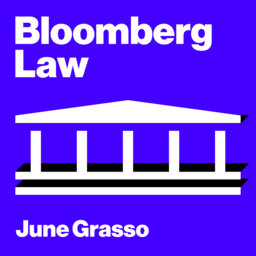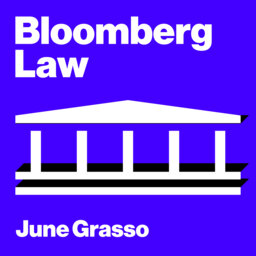Mangione Murder As Terrorism Charge & Judicial Ethics
Criminal defense attorney Jeremy Saland, a former Manhattan prosecutor, discusses the first degree murder charges against Luigi Mangione for the shooting death of UnitedHealthcare CEO Brian Thompson. Legal ethics expert Stephen Gillers, a professor at NYU Law School, discusses a finding of misconduct against a judge who criticized Justice Samuel Alito in an essay. June Grasso hosts.
 Bloomberg Law
Bloomberg Law


